If you truly want to win SERP features, you can use a number of useful SEO analytics tools to improve your SEO
Everyone knows that Google always changes its search algorithm. What you’ve focused before in terms of the website promotion most likely is not working anymore as Google SERPs have become more dynamic and user-oriented. Moreover, it’s not just a list of search results anymore - so be ready to accommodate a whole new appearance of the SERP.
The recent Moz study revealed that 97% of Google’s search queries show rich features like local packs, image packs, knowledge panels, quick answer boxes, shopping results, etc. No matter what your target audience is looking for, Google SERP features can help your content become better than the competition and build online brand presence. Businesses need to prioritize optimizing for these search rich results to rank in position 0.
If you truly want to win SERP features, you can use a number of useful SEO analytics tools to improve your SEO.
1. SE Ranking
Analyzing your competitors will give you a competitive advantage. It is especially important to learn whether your rivals occupy the SERP feature environment, what keywords and pages they take to get into SERP features and determine the range of search volume, rankings and competition.
SE Ranking is a great tool that helps to check out the presence in the various SERP features over time and provides tons of useful information per each keyword paired with your competitors’ pages that is displayed in the SERP feature. The tool shows a detailed overview of your competitors that allows you to view all competitors’ merits and demerits.
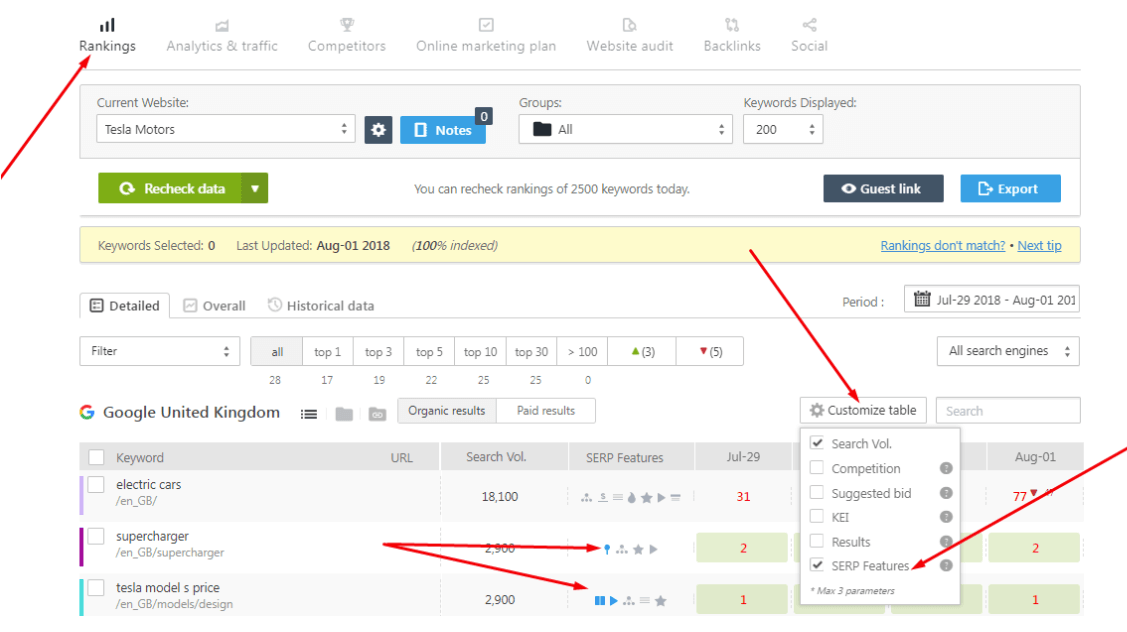
The keyword research is still essential for a successful SERP features strategy. SE Ranking uses Google’s SERPs to find the best-performing keywords and better organize keyword lists with search volume within minutes. It also helps eliminate the irrelevant keywords grouping, optimize your web pages for industry-related questions and improve your chances of being featured.
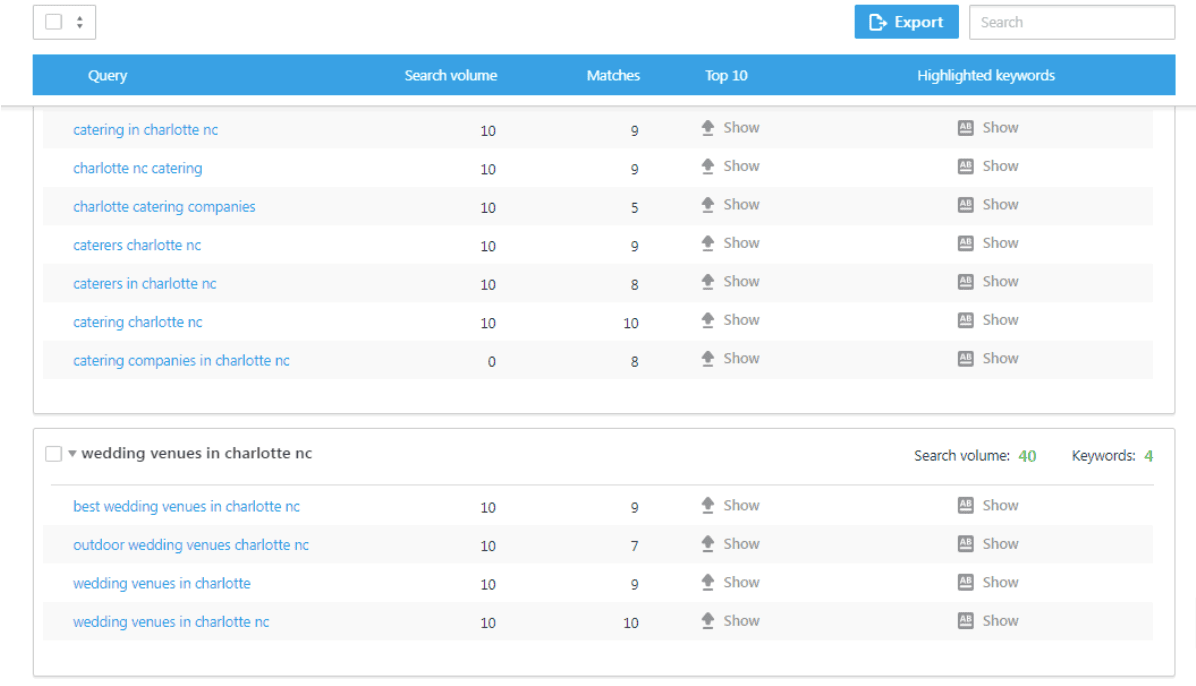
2. Google’s Structured Data Testing Tool
Structured data is very essential for SEO. Search engines are good at understanding your content, but using structured data helps enhance rich results features in SERPs, increase online visibility and generate enough targeted traffic. It isn’t obligatory to use structured data, but they help make your rankings get better positions on SERP.
Google’s Structured Data Testing Tool checks markup validation and detects possible errors on your website. Once you submit your code or URL for testing, you will see how your markup looks like in search results. The tool works for any many types of schema (recipes, product, mobile, etc.)
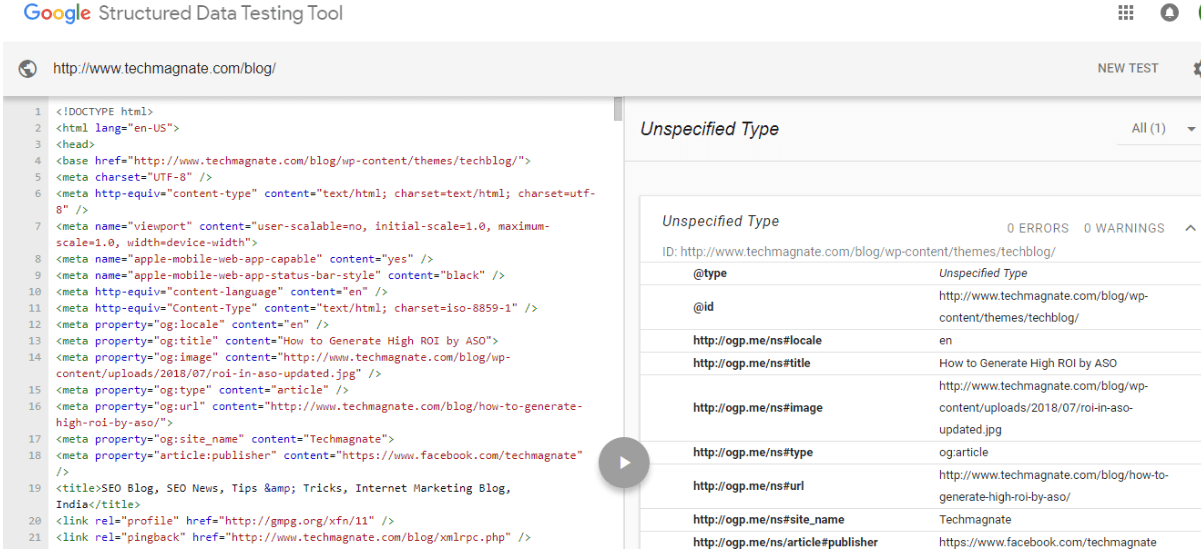
3. Moz Pro
A SERP feature is a special element that makes basic organic snippets rich on a Google Search Engine Results Page (SERP). Tracking SERP features is important for your content marketing strategy as they show the progress of your digital marketing efforts and help you pick keywords to use for SERP features and create the greater visual presence.
Moz Pro offers a great tool that gives a detailed analysis of your keywords and your competitors’ keywords and detects whether or not you’re ranking in the featured snippets. The tool gathers data on 16 SERP features, but it will show you whether you are captured in the featured snippets, or image packs, local packs, reviews, in-depth articles, videos and/or site links. In relation to other features, the system will notify you if you are featured on the SERP.
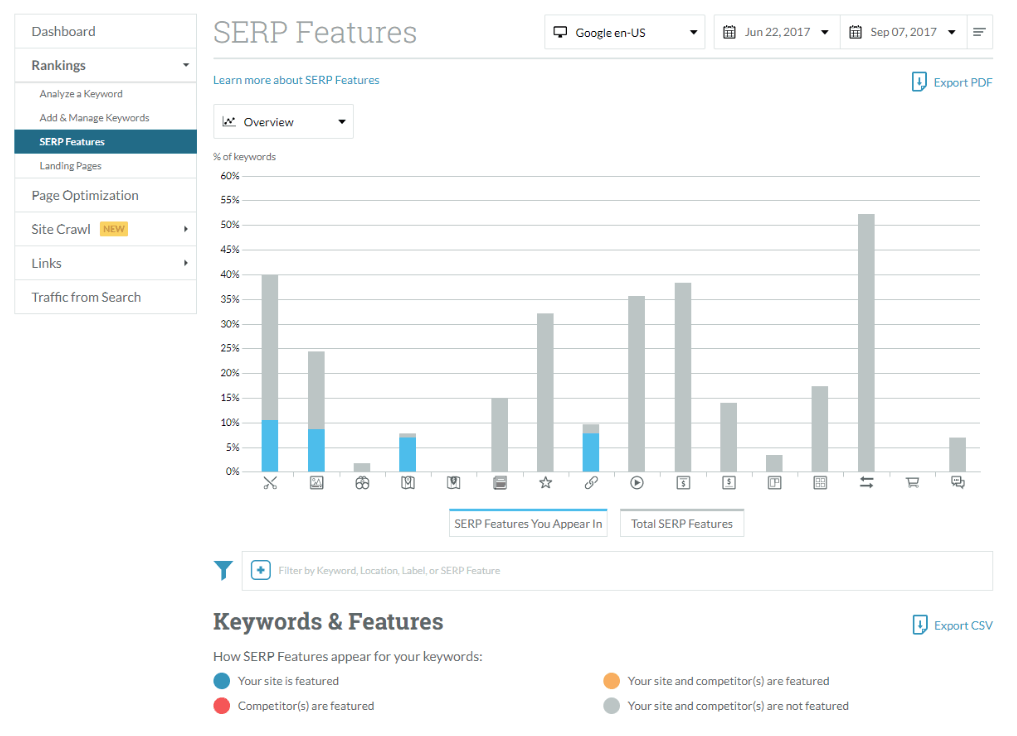
Another key feature is to find out whether you have a chance to win a featured snippet for a certain keyword. The Insights Panel provides SEO tips from Moz Pro that will help guides you towards success. The tool also shows the URL, web page title and description for the leader that you want to outcompete.
4. PowerReviews
The survey revealed that 90% of consumers consider online reviews before making a buying decision. The company’s reputation in search is the lifeblood for online businesses. Customers do pay a lot of attention to the star ratings, Google reviews and overall sentiment. The online reviews also affect your search engine rankings.
PowerReviews offers a wide range of tools for e-commerce that is integrated into many platforms like Magento, Shopify, etc. You can easily organize and collect reviews about you and your products, and include them as part of your site’s content that will make your online business more visible on SERP.

The tool integrates with Google Product Listing Ads, so you can syndicate your product star ratings to Google and increase your CTR both for search results and your product pages. This instrument also gives brands the ability to add those reviews to Amazon and places a verification badge on reviews from real buyers.

5. STAT Search Analytics
STAT is another great tool to explore a SERP feature strategy that can be right for your website. STAT gives a clear signal whether your SERP feature strategy is great for any of your keyword groups, and how the SERP features appear for your site.
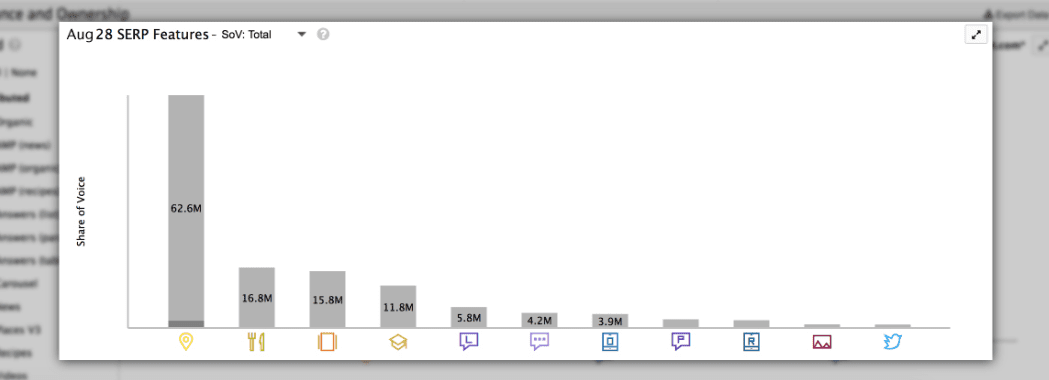
Once you’ve completed the optimization for the SERP features, you can easily track the progress and the general happenings of features on the SERPs. The tool provides detailed reports and measures all your successes and failures in order to understand what works well and what doesn’t work at all.
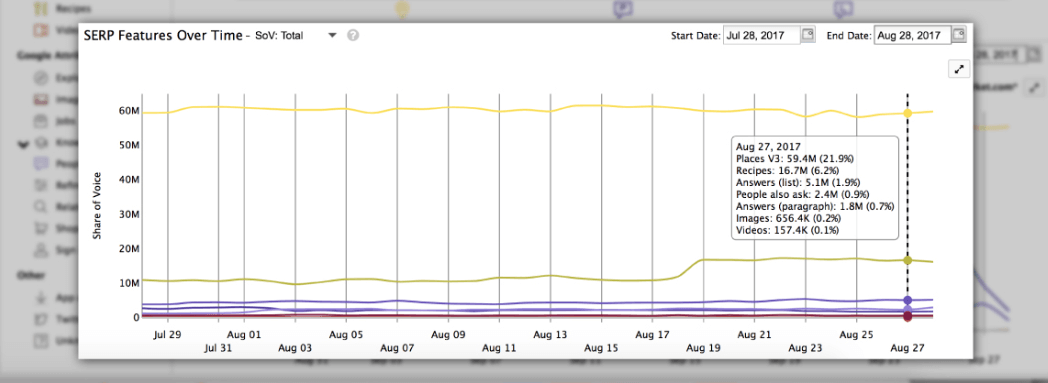
Conclusion
All users search for quality content that answers their search queries as precise as possible. Google tries to accommodate the requirements with the most accurate and visually appealing method. It’s surely impossible to capture all possible SERP features for your keywords, but it’s possible to make every optimization available out there to fit the searchers needs. If you follow SEO best practices, you will be on the way to position zero. That’s where these marketing tools come into play. Share your tips in the comments below!
Thanks to Irina Weber for sharing her thoughts and opinions in this post. She is an active blogger and content marketing enthusiast whose contributions regularly appear in publications related to online marketing, social media, conversion optimization, and business development. You can reach out to her via Twitter @irinaweber048, or connect with her on
LinkedIn.














